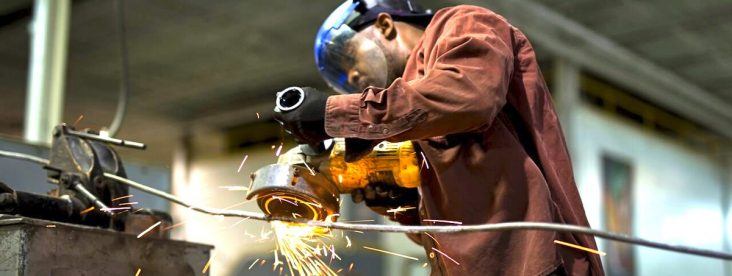Slight bump in Arkansas manufacturing jobs predicted through 2017
by September 14, 2016 4:46 pm 385 views

MKT Fastening, a Lonoke-based construction anchor and fastener manufacturer, is an example of how the manufacturing sector might buck a decades-long trend in the U.S. and Arkansas.
The company, owned by the German-based Wurth Group, has invested more than $900,000 in renovations and plans to spend more on new equipment and technology, CEO Bert Mayer told Talk Business & Politics. The goal is to grow their labor force even though it would be cheaper to manufacture their products overseas in Taiwan or China.
“Nearly all of our competitors are overseas,” he said. “Labor is cheaper, and so are overhead expenses … we want to buck that trend,” he said.
MKT hopes to use new equipment and technology to offset labor costs. The company makes concrete anchors and fasteners primarily used in construction projects. Those include adhesive fastening systems, mechanical anchoring systems, and powder actuated systems.
There are about 25 workers at the MKT plant, and it’s been in operation in Lonoke for more than 21 years. Mayer hopes a new, aggressive sales and business plan will lead to higher sales numbers. The company has less than 1% percent of the market share, but Mayer hopes that will change in the near future.
“It’s a difficult challenge … wages, overhead costs, and markets dominated by larger companies are always issues,” he said. “We want to try and do something different. We want to be more competitive.”
In Northeast Arkansas, the manufacturing job base is seeing areas of growth. Peco Foods Inc. recently opened a poultry processing plant and hatchery in Pocahontas and a feed mill in Corning. This expansion will employ 1,400 in the live animal processing sector. Frito Lay is in the midst of a $47 million expansion at its Jonesboro plant that will add at least 30 more jobs.
Officials at Hytrol Conveyor in Jonesboro told Talk Business & Politics they’ve expanded their employee base in recent months, and now more than 1,000 workers are employed there. Earlier this summer, the company hired 30 new welders, and the demand for welders and machinists will intensify in the next year or two. FMH Conveyor is also expanding its Jonesboro operations and will add another 110 jobs, according to the company.
MANUFACTURING JOB REALITIES
Arkansas had 155,648 workers in the manufacturing sector in 2015, according the Arkansas Department of Workforce Services. By 2017 that number is projected to increase 2.27% to 159,188. The state has an estimated 1.3 million workers, meaning the sector accounts for 11.8% of Arkansas’ workforce. Overall, the state’s workforce is projected to grow 2.6% to by 34,704 workers by next year.
Non-durable goods manufacturers are expected to add 1,818 jobs, with 1,236 of those coming in the food manufacturing subsector. Food manufacturing jobs will account for 68% of the growth in this sector. Durable goods manufacturing is expected to have a net gain of 1,722 jobs by 2017. Transportation manufacturing jobs are expected to grow by more the 1,000, and is the leading subsector. Machinery manufacturing is expected to add 333 jobs. Furniture and related product manufacturing are expected to lose 345 jobs, or 10% of that subsector’s state job force.
However, Arkansas’ manufacturing sector employment fell to 153,200 in July, below the 154,700 in July 2015. The July 2016 jobs level is down 45,700 jobs from 10 years ago, or 23.6%, when the sector employed 200,700 in Arkansas.
The United States had 19.6 million manufacturing jobs in 1979, according to the Economic Policy Institute. The number dropped to 12.3 million by 2014, with about 5 million of those losses coming after the year 2000. The U.S. manufacturing sector had an estimated 12.281 million jobs in August.
U.S. workers in this sector are among the most productive in the world, according to EPI, but many companies are lured overseas by cheaper labor costs. Technological innovations have also cut into the number of available manufacturing jobs.
